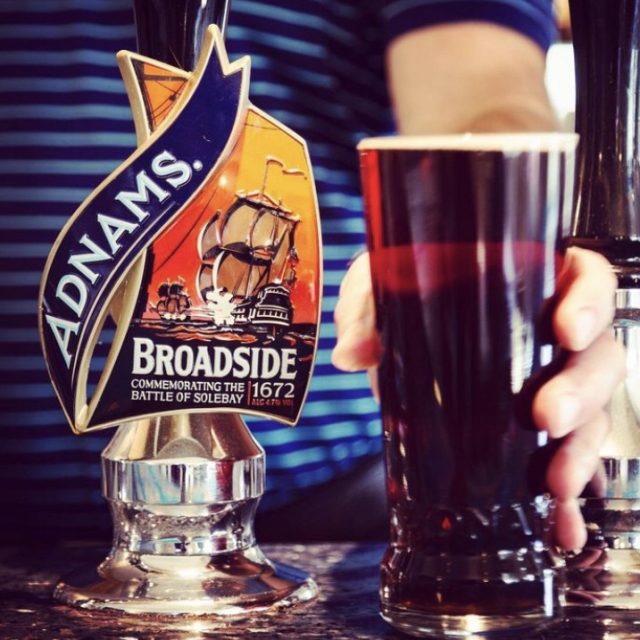Why Adnams’ next steps for funding are crucial for its survival
Historic British brewery Adnams sent the industry into panic following news it was seeking guidance from advisors to raise new funding. db finds out what’s really happening.

Following Adnams recently revealing that it has been working with Alvarez & Marsal (A&M) on a range of options to bolster its finances, rumours circulated across the industry with speculation that an injection of private capital from an investor could be on the cards, potentially along with the sale of some of Adnams’ freehold assets from its pub estate.
According to sources, the objective was to raise capital to pay down bank debt and support future growth, however one thing that did emerge was confirmation that the business was in dire need of funding. When asked if Adnams will look to relinquish some of its pub estate to release cash, a spokesperson for the brewery told the drinks business: “We are reviewing a number of options, however no decisions have been made.”
After speculation that Breal Group and any other private equity firms were currently making a play for the businesses, the spokesperson for Adnams lamented to db that “any such discussions would be confidential”.
Concerns across the sector continued, especially since Breal Group had already swooped in to buy Black Sheep last May following news that the North Yorkshire-based brewery was entering administration due to “the pandemic and the sudden rise in all costs”.
Plus, the private equity firm, which has also bought other struggling British breweries including London-based Brew By Numbers (BBNo) and Brick Brewery as well as Warwickshire’s Purity Brewing Co had also been rumoured to be circling to attain North Brewing to add to its collection before the North business was saved by Kirkstall founder Steve Holt.
Latest developments at Breal Group had also shown that the private equity route could lead to breweries being broken apart with both Brick and BBNo losing staff and brewery sites and consolidated into being brewed in Yorkshire at Black Sheep’s Masham site.
Partner Content
The Adnams spokesperson told db that, to reassure the industry, the company wanted it made known that “Adnams’ priority as a business was to stay true to its values of quality, innovation and sustainability, alongside serving and supporting its customers and colleagues”. A similar missive was uttered by Brick Brewery’s Ian and Sally Stewart who reassured last summer that they “will continue to ensure that the company’s strong ethos and values are preserved” before it became known that the brewery would be closed by its private equity buyers, leaving the sector timid about such reassurances amidst potential takeover offers.
Adnams, which was founded in 1890, still retains its founding family as the company’s largest shareholder, with Dr Adnams, the business’s chairman, owning a 20% stake in the company. The business, now run by Andy Wood, who joined it in the mid-1990s and became chief executive in 2010, also counts veteran marketer Steven Sharp and former Enterprise Inns boss Simon Townsend as its board members, while the senior Marks & Spencer executive Sacha Berendji is also a non-executive director, completing the strong team.
The Southwold-based brewery is most famed for its beers such as: Broadside, Kobold lager and Blackshore stout and yet without assurances about its future, these brands could be under threat.
Speaking to db about the situation, the spokesperson for Adnams explained: “Like many operators in the hospitality and brewing sectors, Adnams has been experiencing significant inflationary pressure on its labour, energy, raw ingredients and borrowing costs. Alongside this, we’ve seen weaker overall consumer demand, as households come under the same financial pressures. We have continued to focus on managing our costs and cash flow carefully through a number of initiatives, whilst focusing on a number of growth opportunities across our business and markets. We’re encouraged by improved trading conditions at the start of 2024 and are confident the steps we’re taking will drive stronger sales growth and restore stronger profitability in the longer-term.”
Adnams chairman Dr Jonathan Adnams admitted in reports that continued inflationary pressures had been having a detrimental effect on consumer demand. While speaking to investors, he additionally pointed out the reduction in the number of pubs across Britain and the 25% decline in the size of the cask beer market since 2019 had not helped the business.
Operating losses in the first half of its financial year increased to £2.4m on flat revenues of about £30m, according to reports and yet a spokesperson for the Suffolk brewery and pub group reassured db that “there are no planned redundancies” but still cautioned that this did not mean the business did not have challenges and said “like any business, we keep our operations under constant review”.
Despite these statements, Adnams has still not revealed how it will fund its next steps for the business and what shape that may take and simply said: “We are exploring ways to support our future growth and provide additional resilience.”
Related news
Northern Monk to raffle 15 litre Nebuchadnezzar of imperial stout




